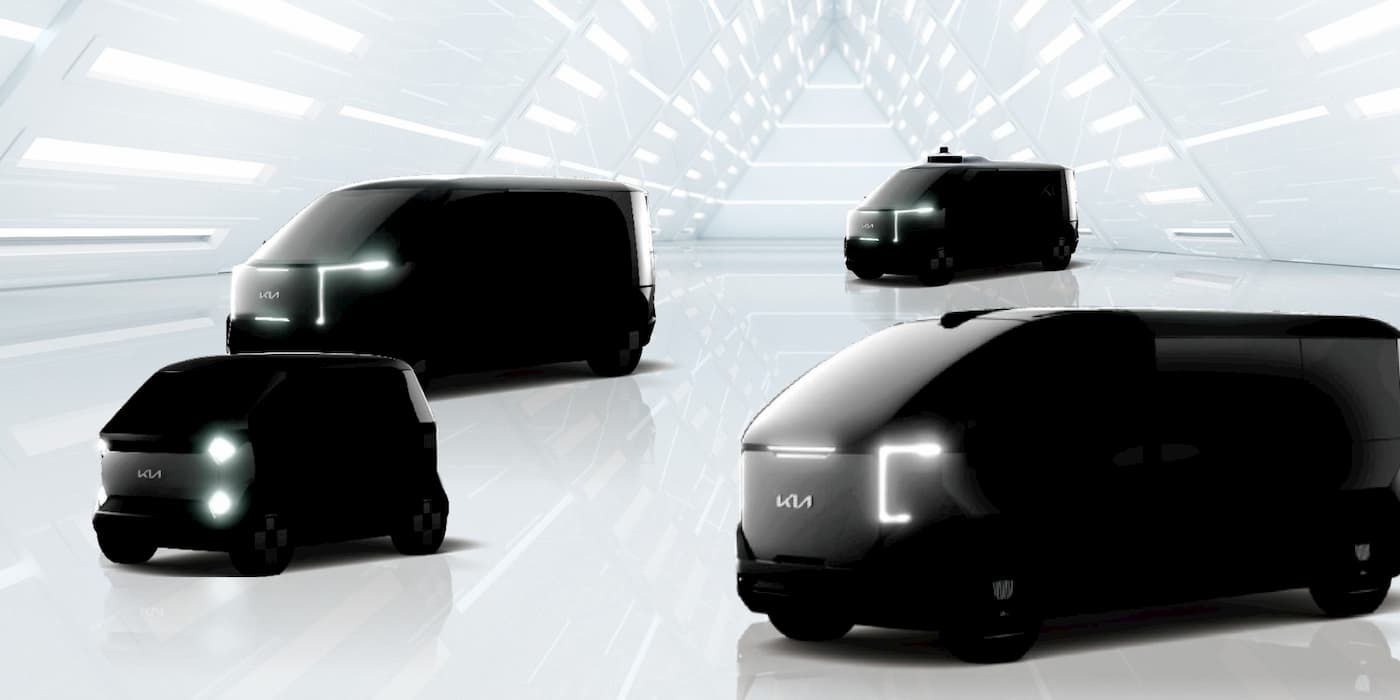
Kia is following in the footsteps of Ford, GM, and Rivian as it prepares to “be reborn as a central brand.” With plans to build a second factory for purpose-built EVs, Kia aims to take advantage of the growing need for PBVs.
The South Korean automaker proposed the plan during wage talks with union workers Friday, according to industry sources.
Kia looks to compete in the emerging tailor-made vehicle segment over the next several years. In a keynote speech this week, Song Ho-Song said that to sustain growth, “transformation of the entire business is necessary.”
He emphasized Kia’s transition from an auto manufacturing business to a “mobility solutions” brand. The brand will spearhead Hyundai’s expansion into new segments.
Kia will not only sell electric cars but also new services like purpose-built EVs, car sharing, and car-hailing.
In April, Kia began construction on its first PBV factory (and the first all-EV plant in South Korea). The company invested roughly $758 million (1 trillion won) with plans to produce 150,000 units annually, starting in the second half of 2025.
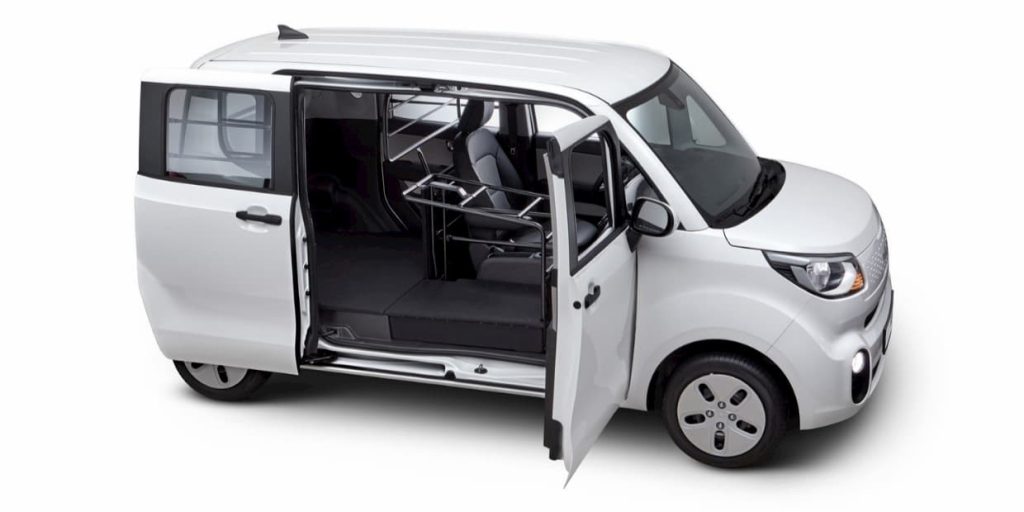
Kia will begin building purpose-built EVs in 2025
The company’s first purpose-built EV, codenamed “SW,” will be revealed in 2025. Kia says the mid-sized PBV will be based on a new dedicated platform for purpose-built EVs.
According to Kia, the electric SW model will support delivery, ride-hailing, and B2B with a spacious interior and optimized load structure.
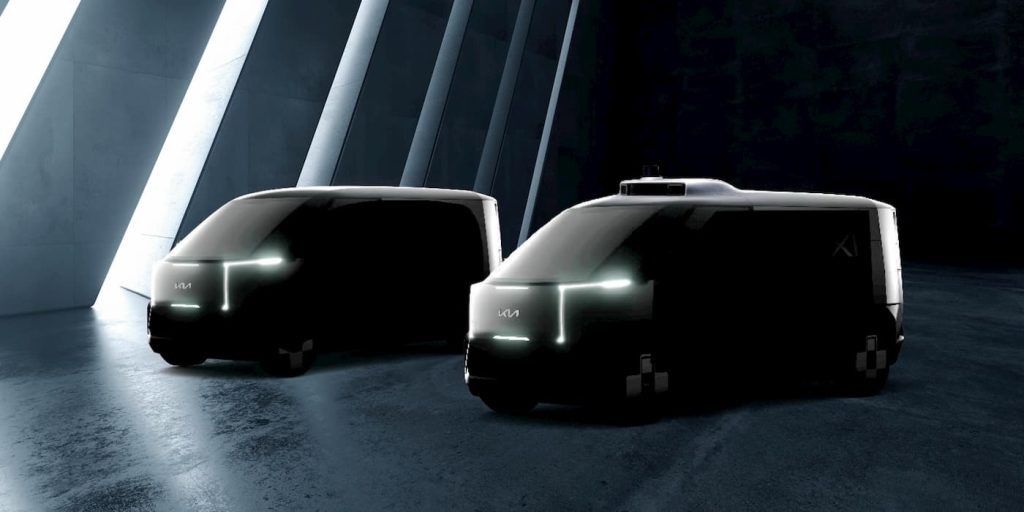
Following that, Kia plans to expand into large-size PBVs that will be used for fresh food delivery, logistics, shuttles, mobile offices, and stores. The company will also launch smaller PBVs and robotaxis.
The larger models will be built at Kia’s second electric PBV plant starting in 2028. Kia’s new facility is expected to be at its production center 50 miles southwest of Seoul.
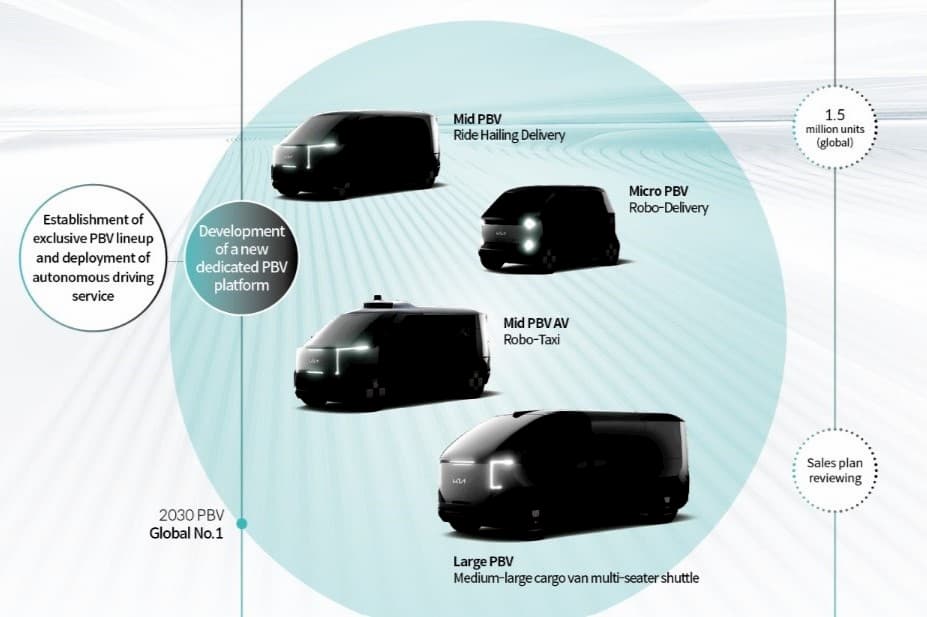
Kia sees larger purpose-built EVs as a potential revenue driver in the future. Automakers like General Motors sell PBVs to major corporations like FedEx and Walmart.
GM established Brightdrop, an all-electric delivery business, in 2021. Companies like FedEx and Ryder have already begun deploying Brightdrops electric last-mile delivery vans.
Meanwhile, Ford’s E-Transit was the best-selling electric cargo van in the US in September and has also been leading in Europe.
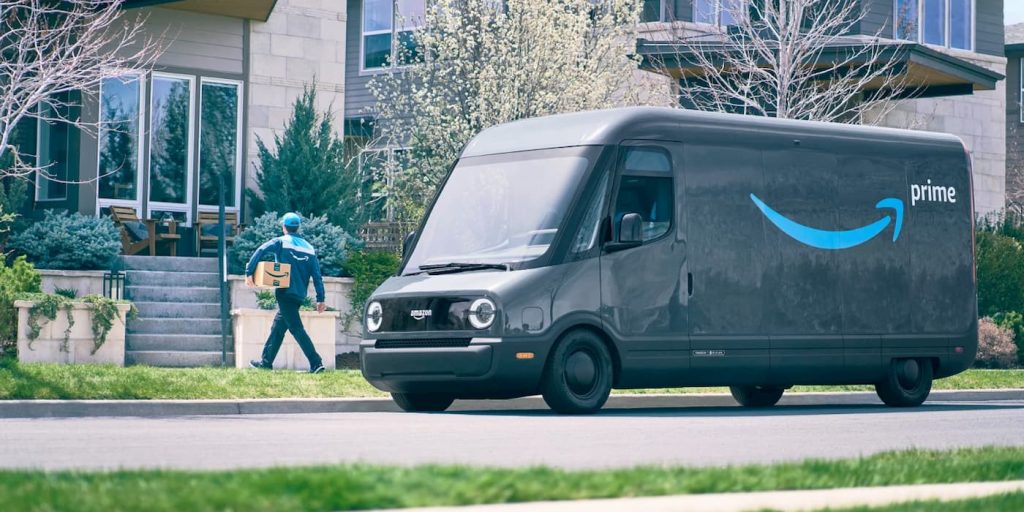
California-based Rivian has also made progress with its electric delivery van (EDV). The EV maker earned a commitment from e-commerce giant Amazon to purchase 100,000 EDVs by the end of the decade. Rivian’s EDVs even reached Europe this summer with a new design for city travel.
Kia wants to lead the segment with over 1.5 million PBV sales by 2030. It has already secured several customers, including CJ Logistics and Coupang.
